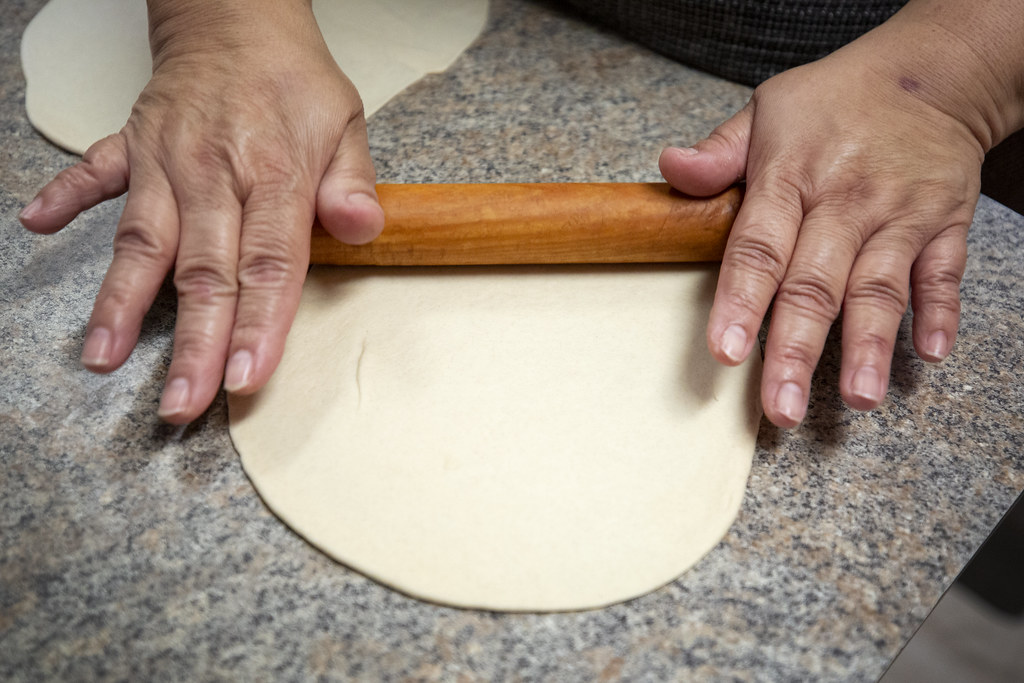Growing up, Emiliano Marentes watched his parents turn the produce they harvested from fields to make carefully crafted Mexican dishes. Today, he’s an El Paso chef who uses his appreciation for farm work and local produce to create the kinds of dishes that have earned him a prestigious James Beard Award nomination.
The James Beard Awards recognize the best chefs and restaurants across the nation. Marentes, who opened Elemi in El Paso in 2019, was selected as a semifinalist in the Outstanding Chef category for the 2022 awards.
Marentes spoke with Texas Standard about his culinary style, his influences and what the award means. Listen to the interview above or read the transcript below.
This transcript has been edited lightly for clarity:
Texas Standard: Can you explain what a James Beard Award nomination means? How did you find out you were nominated?
Emiliano Marentes: The best way to describe it is it’s like the Oscars but for chefs and for restaurateurs. So even to be nominated is so wild. It’s so exciting just to be nominated. Even the day I found out, I just couldn’t believe it. I was so shocked and just trying to take it all in.
Can you explain your cooking process and why you go through so much trouble for fresh ingredients?
Something that I’ve always been passionate about is our tortillas, the quality of tortillas and how they were made. Growing up that was our staple. You know, even though we grew up in the border town and flour tortillas were king, we still had our attachment to Mexico and that’s what we would eat at home is tortillas de maíz from Mexico – from Juarez, actually. So I’ve always had a really close relationship and I used to work at a tortilleria when I was right out of high school, I was around 19. I always thought to myself that I would love to to have a tortilleria that would make tortillas from scratch, you know, put in the corn, nixtamalize the corn, making it into masa and pressing the tortillas. So it was a passion of mine, an idea I’ve had since I was a young kid.
Who influenced you as a chef?
I would say, both my parents and just growing up around farmworkers and my parents would work with farmworkers. So just always being around food, always being around people that were picking onions or jalpeños from the fields. So I always had a good idea and understanding of how you got your jalapeños or where they came from or who was responsible for picking this beautiful produce from my area. And mostly my mom would cook every day, so we would always eat at home a lot. Also, my parents would work a lot, so we would always have to also learn how to cook for ourselves. But a big influence was my dad and my dad wouldn’t cook all the time, but when he would, it was during special occasions, Thanksgiving, New Year’s Eve or Christmas, and I would see how methodical he was and how he would cook. And there was always a process because it would be like an everyday thing. And we would all be involved, helping them skim the meat for the pozole or anything. So it was always seeing him. And usually he would cook traditional foods such as barbacoa, pozole or tripitas. That’s why I was so attached to see how he would do things and being that he wouldn’t do it so often, we were always ready and waiting for him to start cooking.
Your father is a farmworker-organizer, fighting for labor rights. Growing up, being out there with him, did that influence how you decide what to put on your menu, you as a chef?
Yes. So I think a lot of it has to do with the work ethic. And you know, you see farmworkers working so hard and also my parents being so involved, so dedicated and so committed to this ideal of helping migrant farmworkers. So seeing all that, I do think about what’s available locally and what we can use locally. A simple jalapeno – I don’t know if you know, I picked jalpeños myself. So I have so much respect for jalpeños, even though everyone just eats them and never even thinks about it. So even just a simple jalpeño or tomato, to me, are really important. Yeah, there’s amazing ingredients all over the world, but this is something that is so close to me that even just making a simple pico de gallo is so important in treating the ingredients with respect, even though it’s just a yellow onion. So a lot of it does have to do with my upbringing and being around farmworkers and even though, like I mentioned before, you’ve tried many pico de gallos in a bunch of restaurants, when we make ours here it’s a different approach. When do we buy the onion? Is the right time to buy this onion? Is this the perfect onion? Is this jalpeño good? Is it a great jalpeño? So even just those simple ingredients that you might have in your fridge, we treat them with a lot of respect.















